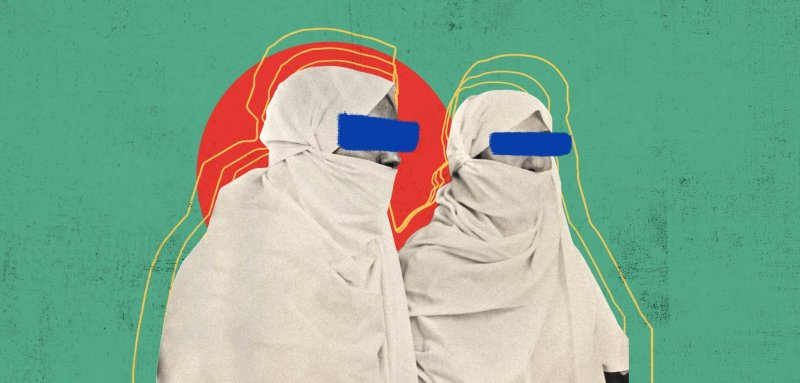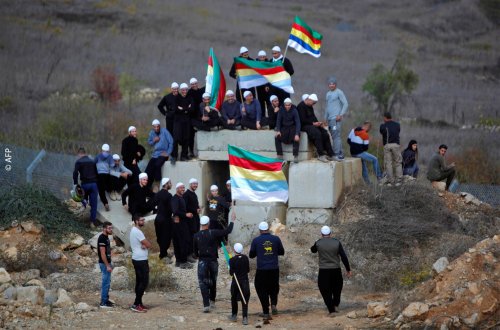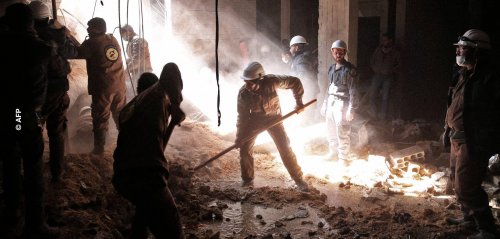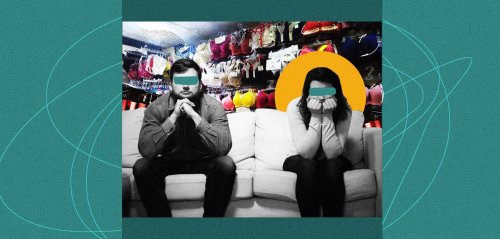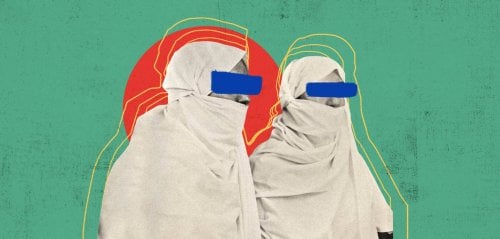Among the things we, the Druze, praise is "our openness" and "our liberal attitudes”, while others praise the "tolerance" of our community.
I used to support, sometimes, this illusion and boast of my belonging to this "open-minded" clique, but deep in my heart I was (and am) fully aware that this community, like other masculine/ patriarchal/ religious communities, was a threat hanging over many Druze women.
I used to support the illusion and boast of my belonging to this "open-minded" religion, but deep in my heart I was fully aware that this community, like other masculine/ patriarchal/ religious communities, was a threat hanging over many #Druze women
I know; delving into this topic is like disturbing a hornets’ nest. Alone and silent, I fought my early war against this clique, and endured the consequences. To be honest and to convince myself, first and foremost, I cannot keep speaking daily of my absolute and unconditional support for women and their rights and freedoms, and of my utter rejection of the patriarchal practices in other Syrian communities and in the world at large, without admitting that the community I grew up in was not fairer to its women than other authoritarian and conservative communities.
The Druze community I came from does not need to exercise its authority directly through cruelty, intimidation, and threat, simply because we - women who have reckoned with it - memorize the lesson by heart as did our grandmothers and mothers. We come from the wombs of our Druze mothers imprinted with a set of attitudes and values that make us by default part of the Druze community.
Women, in any event, are always asked to explain and justify all their fears and the injustice they were subjected to. I want to present three narratives of crimes committed against women from the Druze community who married / loved men unaffiliated with their community, and were consequently doomed to death by this "open-minded" community.
I want to present three narratives of crimes committed against women from the Druze community who married / loved men unaffiliated with their community, and were consequently doomed to death by this "open-minded" community
Most of you have heard of “Huda Abu Asali” who was murdered by her brother (in 2005), at the door of her family’s home, for marrying her non-Druze husband.
When Huda was killed, I was a first-year university student. At that time, I had moved from Al-Sweida to Damascus, not only to study, but to distance myself from the environment in which I was raised and emotionally attached to despite my lack of agreement with many of its norms and rules, especially those touching on the lives of girls and women.
After this crime, in our families’ perception, we are all potential “Hudas”. As usual, after every marriage of this kind - because it is easier for our families to imagine our death than our marriage to men from “outside the community”- fateful and fearful questions are revived: what if our daughter married an outsider?
"Huda" was not the first woman whose murder preyed on my mind. The first was (R**h. Sh), a forty-year-old Jordanian Druze woman who got married to a non-Druze man and had children with him. Her family waited until her younger brother was nearly 18 years old before he murdered his sister, so he would be prosecuted as a juvenile and avoid a longer prison term.
I did not read the story of (R**h) in the newspaper nor did I hear it on the tongues of neighbors and friends. I heard the terrible story from R**h’s mother as she related the event to my mother while I was curled up in bed that morning with my face buried in sorrow and horror in a pillow.
In 1996, I was a child. On a visit with my family to my brother and his wife to Amman, we rented a house in a six-storey building owned by R**h’s family. On one floor lived her mother and father, and on each floor lived a different brother with his family.
My sister and I met R**h’s daughter, who often visited her grandmother, and we frequently played together.
We used to play during her visits in the guest room which had a large sofa with faded colors on one side, unlike the other side. My sister, R**h’s daughter and I used to avoid sitting on the pale side, perhaps because the sun was shining vehemently through the window and settling on this part to add to its faded quality.
One morning, R**h’s mother was having coffee with my mother in the house we were staying in. They did not notice I was awake, and I did not dare to get up; their talk was frightening, and their tears covered their faces while they tried to lower their voices so that no one could hear them lamenting.
Her mother said: “years after her marriage, and when my son (T.) had reached the right age, we invited her to visit alone. She came, and we spent the day together. She was wearing a blue dress. I asked her if she was hungry. She said yes and wanted to have mortadella sandwich. She ate and then her brother called her to the sitting room. She sat on the sofa beside her brother. The knife was concealed in his hand... Did you notice”, she said to my mother, “that the sofa is faded on one side? R**h died here.”
In the summer of 2012, I was visiting my family in Al- Sweida. Before midnight, we heard men’s voices coming from our neighbors’ apartment. Some men were in police uniform and others from the neighborhood, but they seemed on a mission that night. All of them gathered at the neighbors' door. In response to my brother’s inquiry, they told him (N***h. M) had died.
(N***h) was our neighbor who grew up with my sisters and constantly visited us.
“What was the cause of death?” We asked her father.
“She killed herself; she was suffering from depression because she was overweight,” he replied.
The young woman had dated a policeman who had been assigned to our district. He was from a different city and therefore followed a different religion. Many families, including my own, were sure that the father’s account was false and that he was the one who had committed the murder. The weapon he had used was a hunting rifle with a silencer. And now the community was haunted by its traditional silence, as if we were all mute.
N***h’s father’s explanation was publicly accepted: she had committed suicide. My mother prevented us from confronting the father. In grief, we shouted at each other and directed our anger at my mother. We raged against the injustice of both this crime and the subsequent silence. According to local customs and the religious mores of the community, there could be no funeral or public burial for someone who had committed suicide. We did not say goodbye or have a means of expressing our grief and rage.
Despite her sadness, my non-religious mother preferred social conformity over confronting the killer. Inside, I silently carried an anger at myself, my family and my community, and in a state of a profound shame about our collective silence and failure to respond adequately to (R**h)’s, Huda’s, and (N***h)’s murders. I left Al-Sweida and then Syria.
For decades in Syria, the term “honor” crime has been associated with the Druze community. It was not a secret that some or many families killed their daughters, and others would not hesitate to kill a woman if she married someone of a different community or religion. Druze men are also forbidden from marrying outsiders and sometimes face social sanctions if they do so. However, no one has ever heard of a family whose son was murdered because he married a non-Druze, nor should we ever hear of such an eventuality.
For decades in Syria, the term “honor” crime has been associated with the Druze community. It was not a secret that some families killed their daughters if they married from of a different community. Druze men are also forbidden from marrying outsiders
It is an ironic twist of fate that women lose their lives in the name of religion, or to be more blunt and honest, in the Druze case, women are sacrificed on the altar of community standards. Religious practices are not present in the daily lives of most Druze, except for the devout, but reputation and the fear of stigma, instead of Wisdom and prayer, now govern daily life and social practices.
We Druze women have limited choices and are confined by the code of honor to the spaces created by the community. We are therefore asked to choose someone who conforms to the standards established by fathers, brothers, uncles, and sheikhs. The alternative is death.
Finally, it must be noted that we are not an endangered species. We are not responsible for upholding the customs of these sects or religions, especially if they crush our desires, agency, and selves. The decline of certain practices, whether religious or not, does not pose a threat to us as human beings. We should make room for and celebrate the right to love and be loved without fear of violence and retribution.
* Out of respect, I decided not to use the names of the two victims in order to preserve the privacy and safety of other women in their families, but in my life and in this essay, I pay homage to them.
Translated by: Medya Ayob, Michael O’Brien
Raseef22 is a not for profit entity. Our focus is on quality journalism. Every contribution to the NasRaseef membership goes directly towards journalism production. We stand independent, not accepting corporate sponsorships, sponsored content or political funding.
Support our mission to keep Raseef22 available to all readers by clicking here!
Interested in writing with us? Check our pitch process here!
